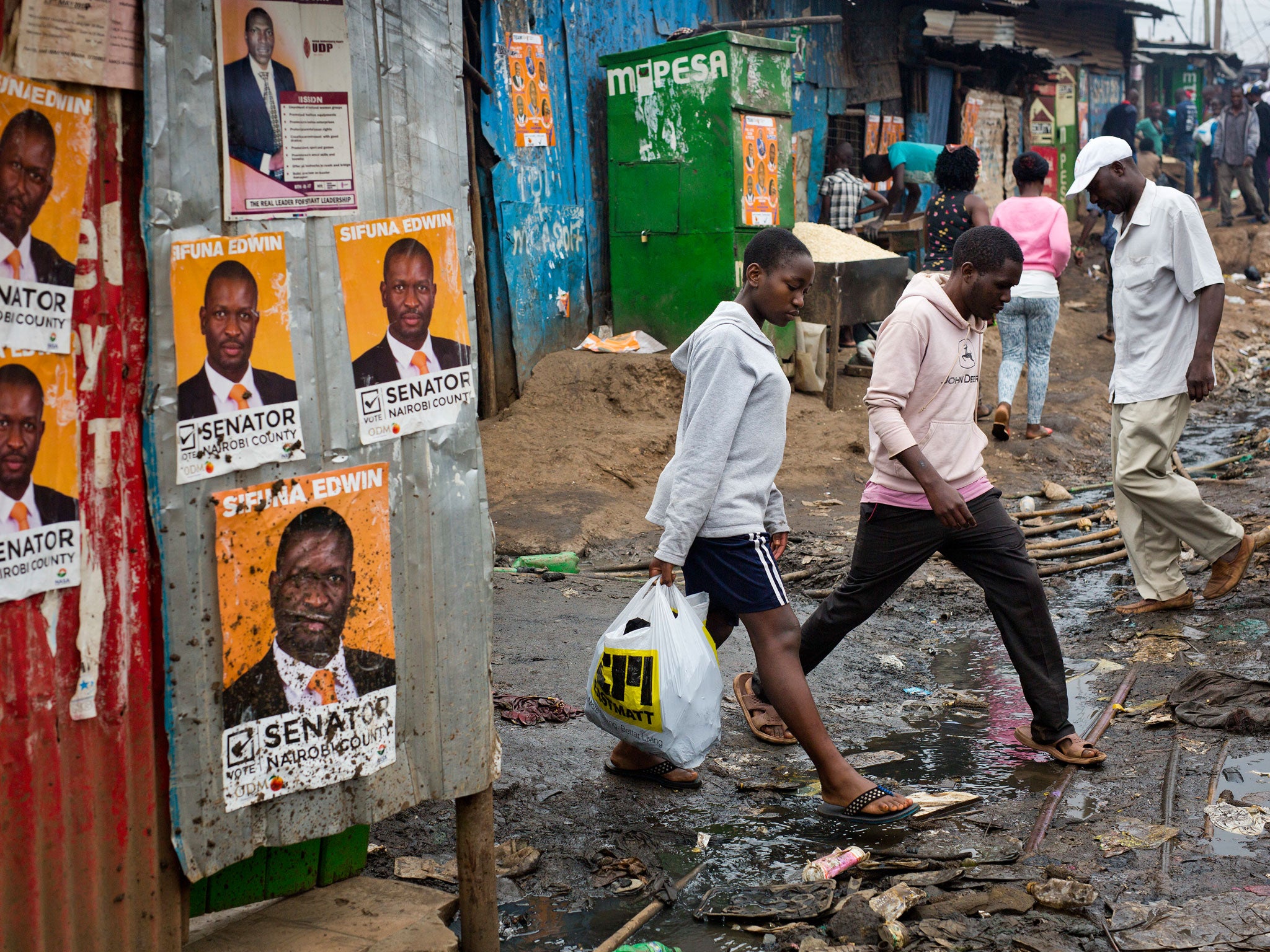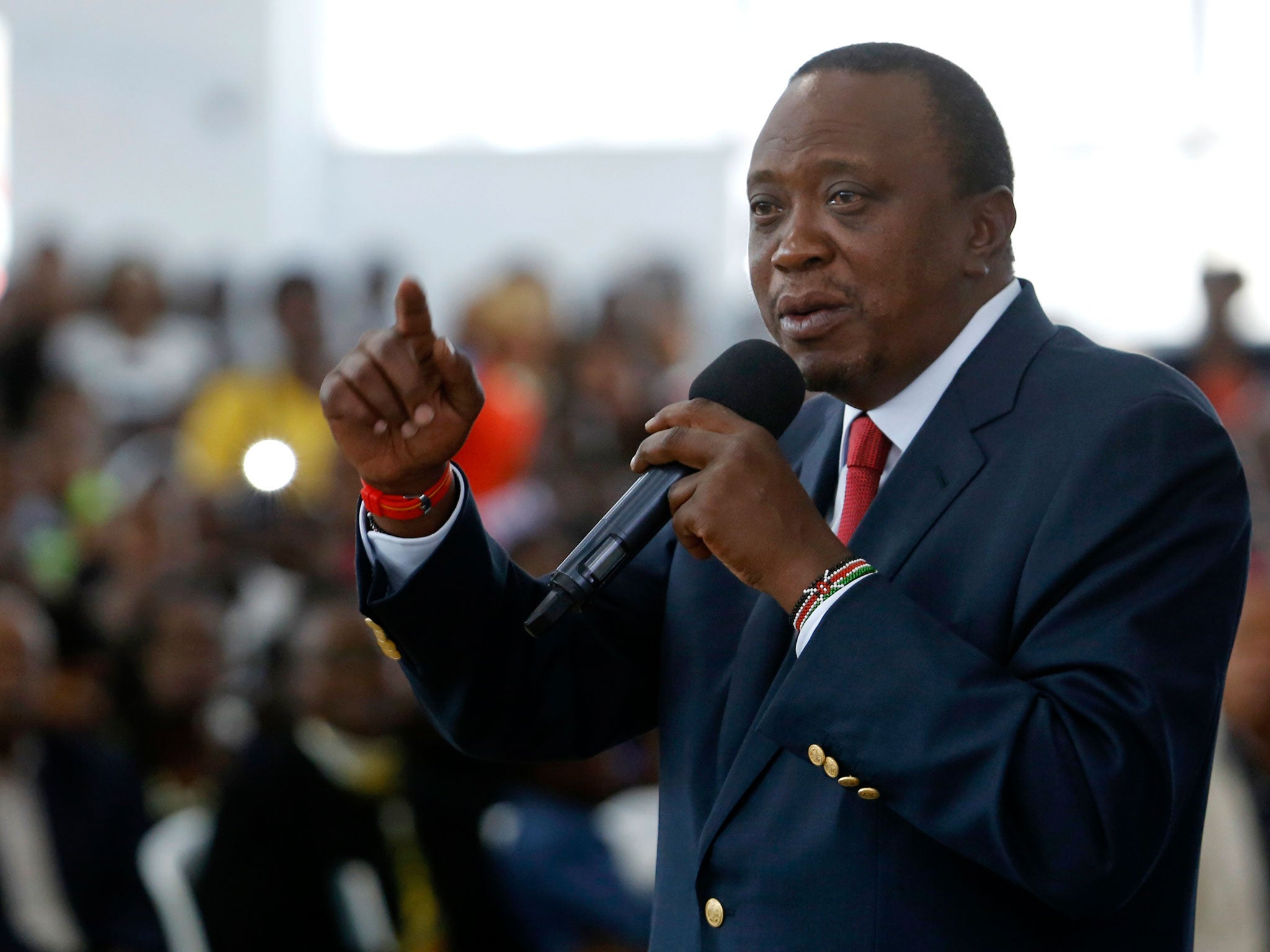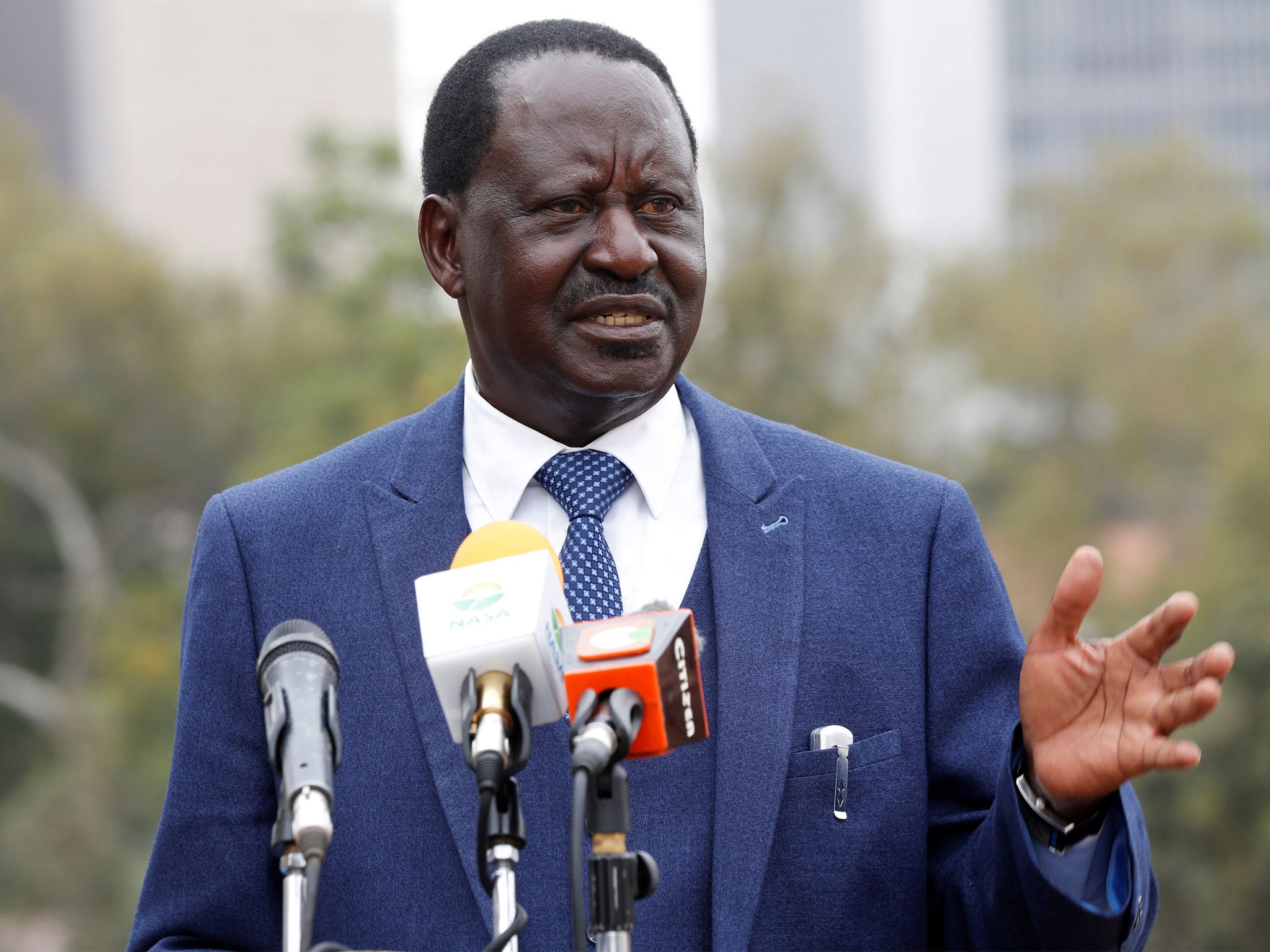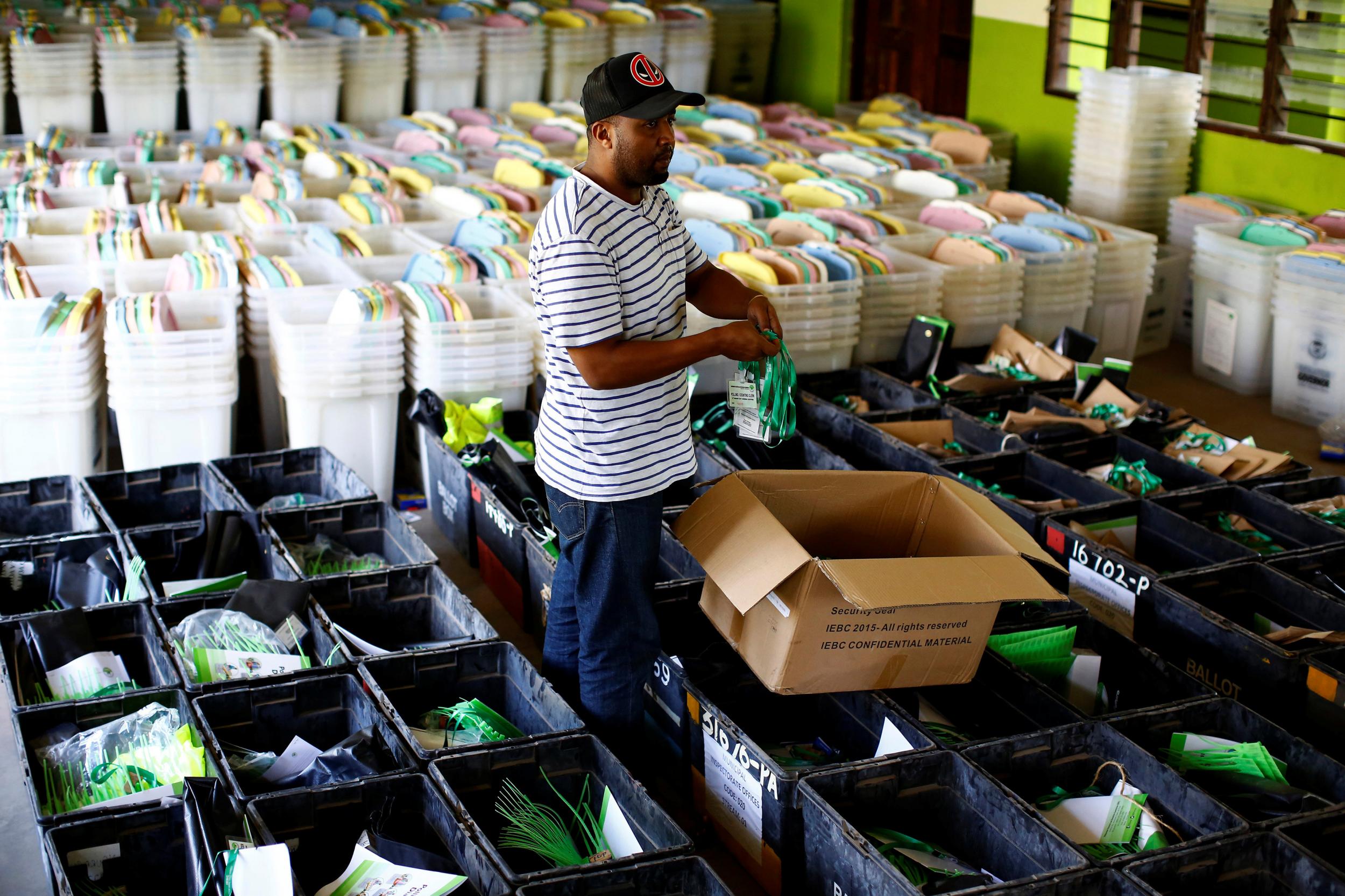Kenya election 2017: This time round there's not one flashpoint for potential violence – there are 47
The country is braced for a close race for the presidency on Tuesday. But a new wave of devolution means the main event will not be the only bone of contention once the results are announced

Your support helps us to tell the story
From reproductive rights to climate change to Big Tech, The Independent is on the ground when the story is developing. Whether it's investigating the financials of Elon Musk's pro-Trump PAC or producing our latest documentary, 'The A Word', which shines a light on the American women fighting for reproductive rights, we know how important it is to parse out the facts from the messaging.
At such a critical moment in US history, we need reporters on the ground. Your donation allows us to keep sending journalists to speak to both sides of the story.
The Independent is trusted by Americans across the entire political spectrum. And unlike many other quality news outlets, we choose not to lock Americans out of our reporting and analysis with paywalls. We believe quality journalism should be available to everyone, paid for by those who can afford it.
Your support makes all the difference.Kenya goes to the polls tomorrow under a cloud of trepidation that, 10 years on from the horrific clashes of 2007, the country will once again be hit by post-election violence.
Citizens of East Africa’s most vibrant economy face a straight choice at the presidential level between the incumbent President Uhuru Kenyatta and perennial opposition leader and ex-Prime Minister Raila Odinga.
With opinion polls putting the candidates neck and neck and the political careers of both men at stake – at 72, Mr Odinga has said this is the final time he will stand for the presidency – that race alone is enough to raise tensions.
But for the first time in the country’s independent history, tomorrow’s vote is being hailed as the devolution election, as local races to choose governors for Kenya’s 47 counties provide arguably even greater intrigue than the presidential battle.
The decision was made in the wake of the 2007 clashes, in which some 1,400 people were killed, to decentralise large amounts of budgetary control and responsibility from the seat of government power in Nairobi to all the regions of the nation.
Kenyan politics is typically divided along ethnic lines, and it is seats where two ethnic groups could clash – or the race is believed to be very close – that have the greatest potential for violence.
The importance of the presidency has been diminished, so the theory goes, reducing the chance of clashes in the capital. But in doing so, it has created 47 potential flashpoints instead of just one.

“People are worried,” Rebekka Rumpel, research assistant in the Africa Programme at Chatham House covering Tanzania and Kenya, tells The Independent.
“There is much more understanding of just how powerful governors are [since 2013] and just how much resources they now control. There is so much more competition and pressure, and there might actually be more conflict because of that.”

Signal Risk, a crisis and risk-management company working across the African continent, has identified 19 of the 47 governor seats where conditions are particularly ripe for violence. They include Nairobi and parts of the Rift Valley, where most of the fighting was concentrated in 2007, but also seats in the drought-afflicted northwest like Turkana, which has experienced a huge spike in public spending since devolution was enacted.
Ryan Cummings, the director of Signal Risk, agrees that the shift to a more decentralised system has “increased the propensity for violence on a county level”.
But the threat of clashes between supporters of Mr Kenyatta’s Jubilee Party and Mr Odinga’s National Super Alliance (Nasa) has not completely gone away either, he says – particularly if there is any hint of election corruption.
“The presidential leg remains so tightly contested that it could still catalyse political violence of a widespread nature, should discernible evidence of electoral fraud emerge,” he says.
Kenya’s electoral commission shares these fears. Interior minister Karanja Kibicho said last week that the government has trained and deployed 150,000 security officers to police the vote.
It comes after Mr Odinga said in January that “we are not going to take it lying down” if the election appears to have been fixed, and Nasa came up with plans to have supporters “protecting” the vote at each polling station.
Fears for the fairness of the election were greatly strengthened when, last Monday, electoral commission IT manager Chris Msando was found dead on the outskirts of Nairobi. An official said there was “no doubt he was tortured and murdered”.
Corruption is an endemic part of the Kenyan political system, beyond concerns for a rigged election. MPs in the country are among the best-paid in the world, while public services languish, even in the context of developing nations.

Of the two election candidates, Mr Odinga has made the most of presenting his campaign as anti-corruption, writing in the Nasa manifesto that Mr Kenyatta’s ruling party has “thrived” in a culture where politicians are “masters, not servants” to the people. The opposition leader traces this culture back to the colonial administration, and says he will tackle it with a new “code of conduct” for all elected officials.
The other major issue dominating headlines in the latter stages of the election campaign has been Kenya’s rising cost of living, a crisis that is most evident in food prices in the capital but which extends right across the country.
Both candidates have vowed to tackle this by creating jobs, but remain vague about how this can be done while Kenya is beset by drought to the north and the violent militancy of al-Shabaab to the east.
One subject which has fallen off the radar, however, is healthcare – despite the fact that Nairobi has been wracked by repeated and deadly doctors’ and nurses’ strikes over the course of the past year.
Nairobi is host to the largest non-conflict zone operation run by Médecins Sans Frontières (Doctors Without Borders) anywhere in the world, so dire is the state of public medical services in the country.
When The Independent visited MSF’s clinic in the Mathare slum at the end of last year, at the height of the doctors’ strikes, workers described the bizarre situation where a foreign NGO was providing the only ambulance services in one of Africa’s most affluent capital cities.
Harriet Ayikoriu, MSF’s team leader in the Eastleigh suburb of Nairobi, told The Independent the area has just one public hospital covering two million people.
“MSF is here in response to the needs of the population,” she said. “There is very little healthcare provision, it is either private and very expensive or [from the ministry of health] it is not really 100 per cent free and still cannot be afforded by the people here.
“They do not question it. They do not ask: ‘Why is MSF here, MSF is supposed to be working [in conflict zones].’ For them it is perfect that MSF stays here.”
Chatham House’s Ms Rumpel says the doctors’ strike made healthcare “a really big deal” and both parties made bold promises in their manifestos. But as polling day has approached, coverage has diminished and there are concerns that little will change.
“As a measure of how public services work, it was displaced by the debate around the cost of living and cost of food,” she says.
Though election observers have been encouraged by the serious and policy-driven manifestos produced in this campaign by both Mr Kenyatta and Mr Odinga, there is only so much impact issue-based politics can have in Kenya.
When Kenyans go to the polls tomorrow, they will still mostly vote along ethnic lines – Jubilee and Nasa are in reality coalitions of tribal groups, not of ideas. Because of changes to the counting system whereby each polling district will announce its own results as they come in, indications of which way the vote has gone should come quicker than in previous years. Any news of potential clashes over the result will not be far behind.
Join our commenting forum
Join thought-provoking conversations, follow other Independent readers and see their replies
Comments